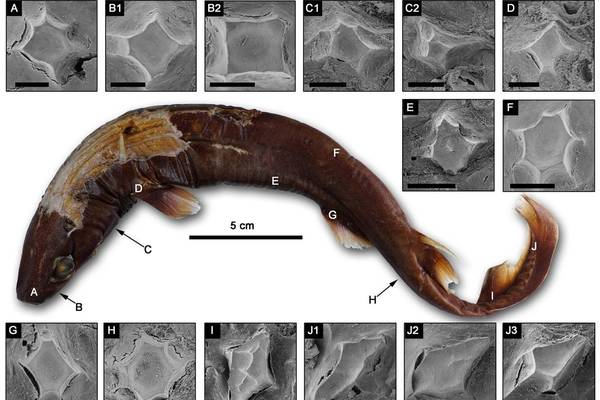Vienna (OTS) – Mass extinction events are among the most exciting areas of research. One particularly dramatic event that appears to have killed the most deep-sea sharks was recently documented in the heart of the deep sea. But not every disaster stands up to critical scrutiny, results from the new study from NHM Vienna show.
Sharks have a track record of more than 400 million years and defy all major mass extinctions. In addition to the more serious ecological disasters on the Permian-Triassic boundary (about 252 million years ago) and the Paleogene-Cretaceous boundary (about 66 million years ago), a more dramatic extinction of deep-sea sharks has occurred recently. Two American scientists recently reported in the journal “Science” a decline in shark diversity 19 million years ago, with a decline in shark abundance in the deep sea by more than 90%. Given the relative stability of the deep sea to brevity of environmental changes, this massive decline in deep sea sharks is both alarming and surprising at the same time. Researchers at Vienna’s Natural History Museum and some international colleagues were skeptical, as they had not seen any such event in their data. “In several FWF-funded projects, we have examined marine sediments of the same age in Italy, Greece, Turkey, Tanzania, India, Sri Lanka and Oman. Study co-author Dr. Matthias Harzhauser, Head of the Department of Paleontological Geology at NHM Vienna.
The data used by American scientists was based on shark scales made from a few grams of sediment taken from the heart of the deep sea. However, US researchers have overlooked the fact that the input of sand and mud in the South Pacific increased by leaps and bounds at the time of the putative event. As a result, there were suddenly far fewer fossils to be found in the same sample size, which has been misinterpreted as a dramatic extinction event. “We simply corrected for the original data using sedimentation rates, and the putative extinction event turned out to be an artifact. Deep-sea sharks were not particularly affected by global climatic changes in the Miocene,” explains study director Iris Fichtinger, MA, of NHM Vienna.
a tool:
He commented on the “early Miocene extinction of pelagic sharks”. Feichtinger I., Adnet S., Cuny G., Guinot G., Kriwet J., Neubauer TA, J. Pollerspöck J., Shimada K., Straube N., Underwood C., Vullo R., and Harzhauser M. Science: doi: 10.1126/science.abk0632
https://www.science.org/doi/10.1126/science.abk0632
Source: OTS








More Stories
Ubisoft wants to release a new Assassin's Creed game every 6 months!
A horror game from former developers at Rockstar
Turtle Beach offers the Stealth Pivot Controller for PC and Xbox